The third edition of the Polish Organizations Pooled Fund (POP Fund) grant competition, made possible through funding from the Center for Disaster Philanthropy (CDP), focused on supporting Ukrainian children in education and integration. In this edition, a total of 12 projects were funded, with 9 financed by CDP. Notably, 3 of these projects were implemented in Toruń.
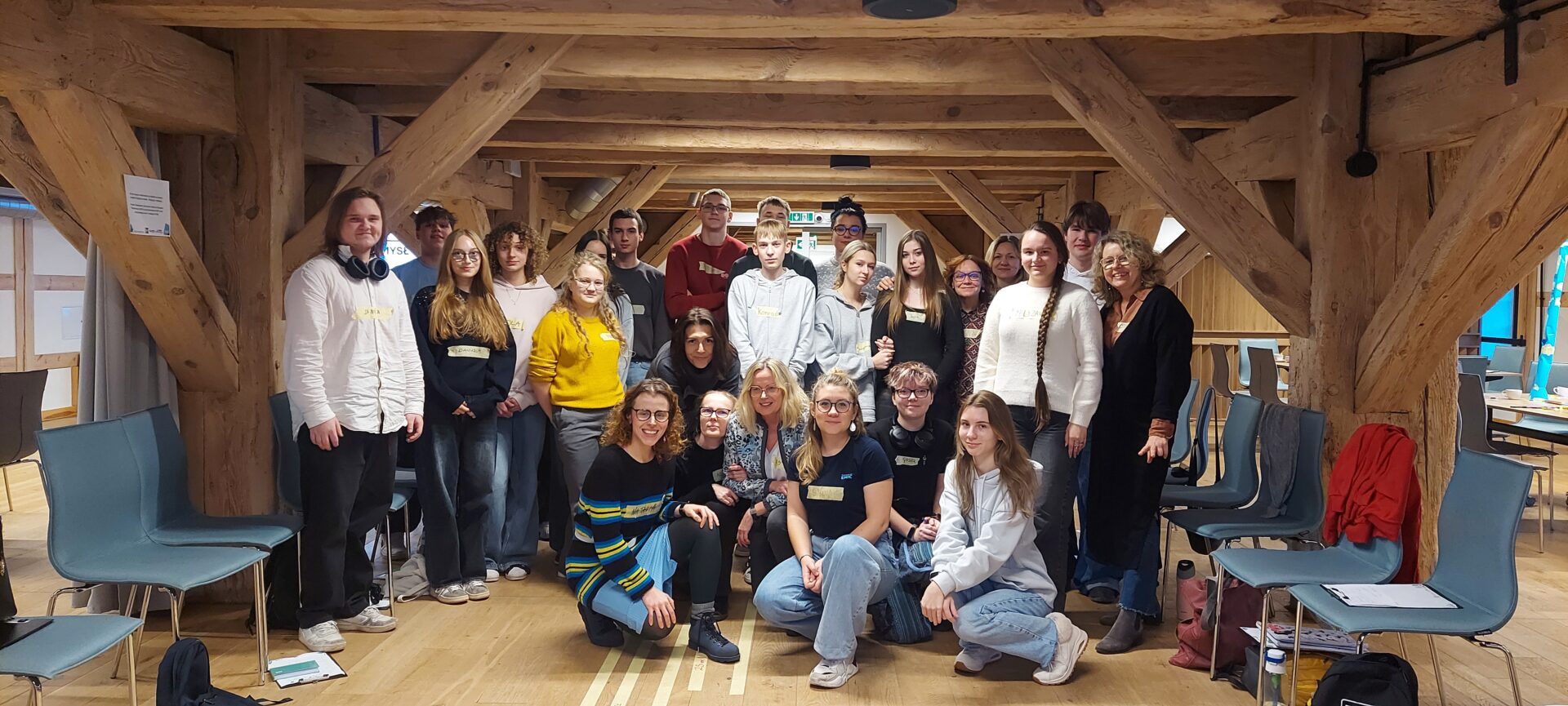
Students as initiators of change
The Emic Foundation carried out an educational support project for children from Ukraine, combined with integration activities in schools in Toruń and Bydgoszcz. What sets the Emic Foundation apart is the participatory nature of its initiatives. High school students took part in project-based workshops that served as a starting point for their own initiatives within their schools.
“It was very important to me that the young people weren’t just passive participants or simply consulted, but that they actually helped shape the content of the project. It was the student project groups – made up of both Polish and Ukrainian students – who developed the educational materials in the form of an interactive poster exhibition. The content comes entirely from the students’ own workshops and ideas.” – Sylwia Antonowicz, project coordinator.
Students from the schools involved in the project had the opportunity to carry out their own student-led projects. One school organized workshops on making motanki (traditional Ukrainian dolls), and the mother of one of the students provided Ukrainian pierogi for all participants. At the automotive schools, full-day sessions were held where students learned about, among other things, the automotive
traditions of their respective countries. Another school created its own Escape Room with elements of multicultural and global education, which is set to become part of the school’s annual ritual for welcoming students to the new school year.
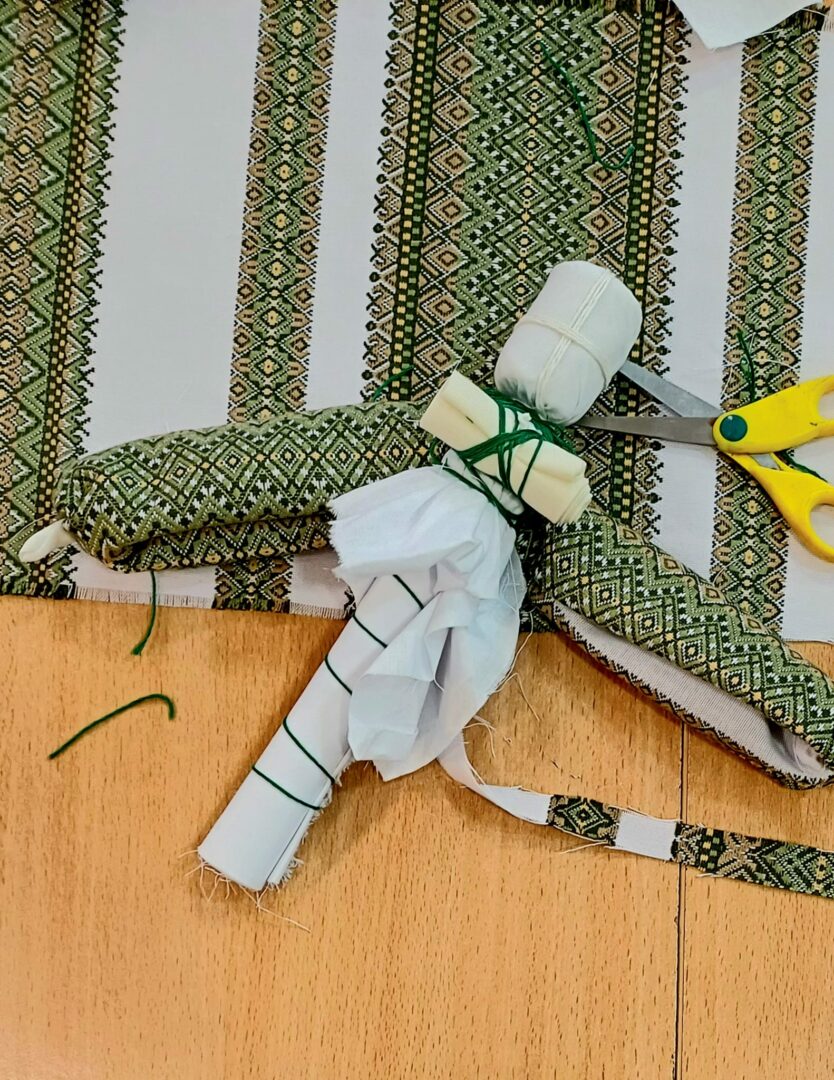
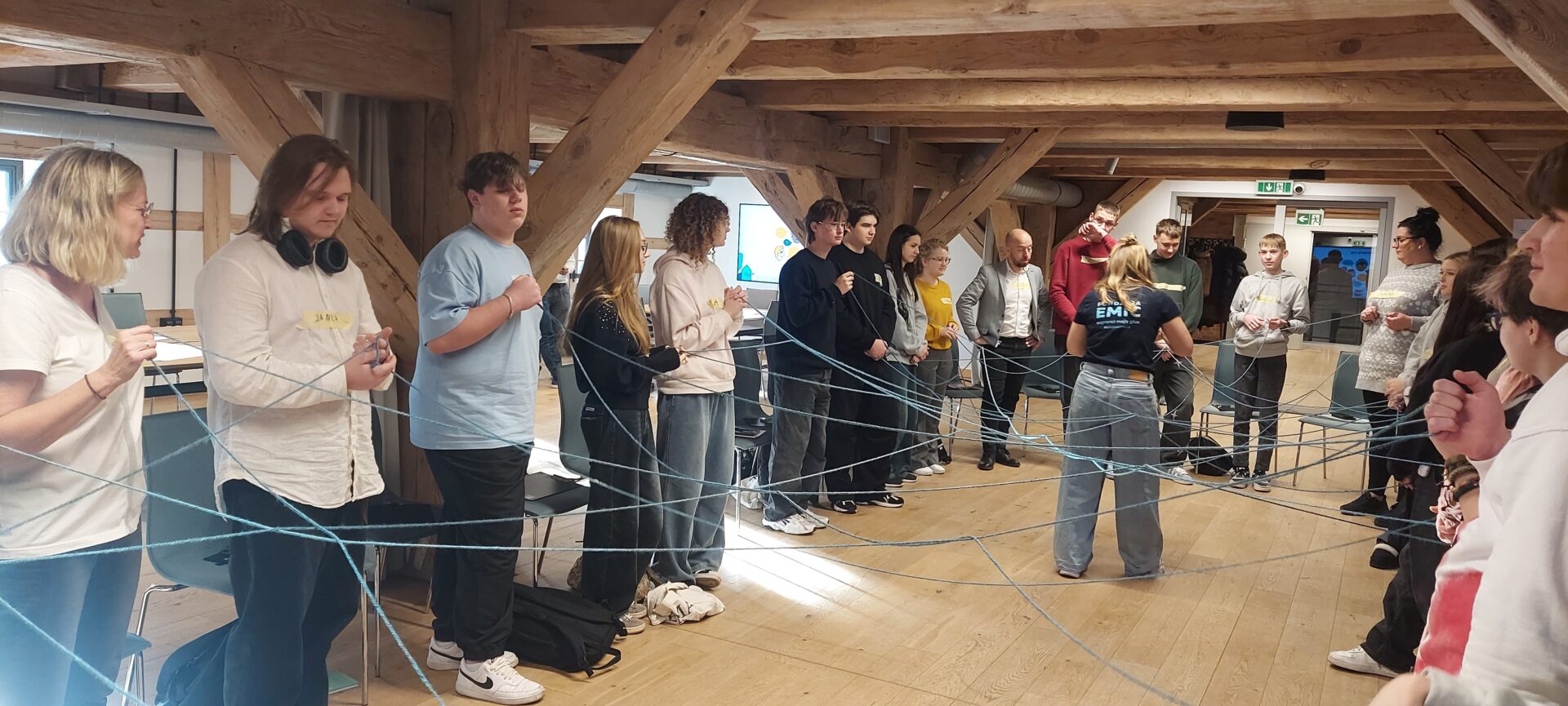
Someone who truly understands – the role of cultural assistants
The Emic Foundation also supported the psychological and pedagogical counseling center in Toruń by employing a Ukrainian psychologist. Swietlana, a psychologist with many years of experience, works both in diagnosing Ukrainian children and in supporting children, parents, and schools in difficult situations. She serves as a cultural assistant in cases where not only language but also cultural issues are crucial. It is easier for parents and children to open up to someone who shares a similar background and experiences, and for Swietlana, it’s easier to understand the challenges they face than it would be for a Polish specialist.
Such support from assistants is still very much needed, as both Swietlana and the director of the counseling center have repeatedly emphasized. There is a shortage of assistants in Toruń schools, and there are no funds for this, which is why everyone is eagerly awaiting the “School for All” program.
In the school year now coming to an end, thanks to a project funded by the POP Fund, similar support was provided by assistants from the Kosmos Foundation—a psychologist and an educator—who helped children and parents in Toruń schools during crisis situations. In their view, even ordinary disputes between children often take on added weight when the children come from different national or ethnic backgrounds. The assistants received calls not only from schools in Toruń but also from other parts of Poland, which highlights the significant need for this type of support.
Supporting students on the margins or outside the education system
The Kosmos Foundation is effective at reaching those who are on the margins of the education system—or entirely outside of it. One of their Polish language courses included teenagers who, despite having lived in Poland for over two years, didn’t speak Polish because they had remained in the Ukrainian online education system. Among the participants was Roma, a 17-year-old from Kyiv. At the time the course began, Roma was living an online life — finishing Ukrainian high school and spending his free time playing video games. Thanks to the classes organized by the Kosmos Foundation, he can now confidently talk in Polish about his future plans, including studying urban planning at Nicolaus Copernicus University. According to Anna Lamers, the president of the Foundation, there are still many children and teenagers outside the system because of their digital fluency, they manage daily life without knowing the language, but this puts them at risk of increasing isolation and social exclusion
Language, identity, and community – the Ukrainian Saturday School
For refugee children, however, there is an additional challenge: the loss of connection with their native language and culture. To help children learn in their mother tongue and build relationships with Ukrainian peers, the Dobra dla Dobra Foundation organized Ukrainian Saturday School classes, which were held throughout the school year at their Polish-Ukrainian House in Toruń. Ukrainian educators led a curriculum where language learning was combined with strengthening cultural and identity ties. The classes were organized around specific themes, such as Vyshyvanka Day or the legacy of Taras Shevchenko. The Saturday school offered Ukrainian children a chance to learn and connect with peers. As Tatiana Dembska, the president of the Foundation, explains, these classes were also important for mothers, creating a space for connection and community.
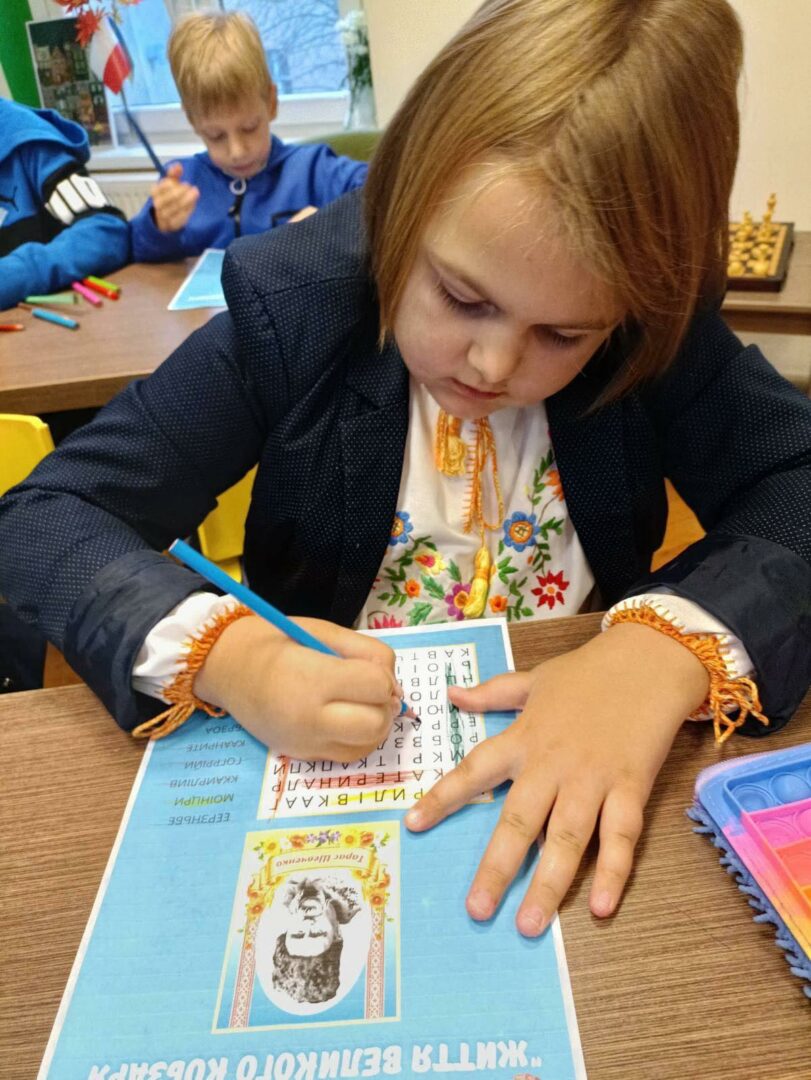
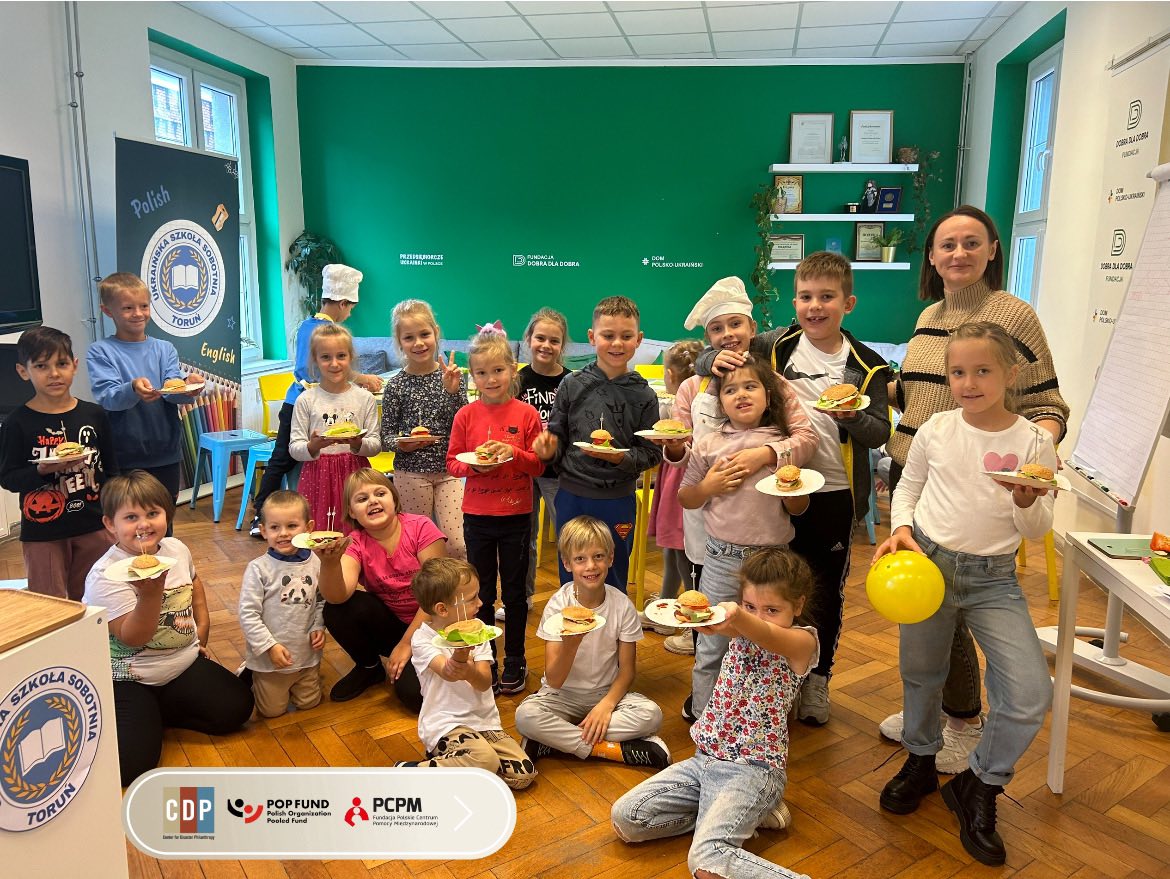
When help works. The impact of support provided through the POP Fund
Projects carried out through the POP Fund, initiated and managed by the Polish Center for International Aid Foundation (PCPM) with funding from the Center for Disaster Philanthropy, provided educational, integrative, and psychological support to around 200 children in Toruń. Similar projects were underway in other parts of Poland, including Saturday schools in Jelenia Góra, the Warsaw area, and Przemyśl, as well as assistant support in Białystok, Wrocław, and Łódź.



